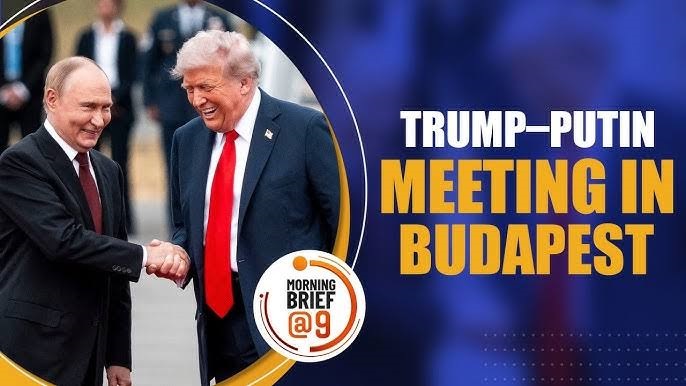
Hungary’s long-standing and consistent diplomatic efforts appear to have come to fruition. The fact that Donald Trump and Vladimir Putin will negotiate in Budapest over ending the war in Ukraine has made it undeniable that Hungary has become an unavoidable actor in international politics, writes Peter G. Feher, an observer of ‘Magyar Hírlap’ (Hungarian Gazette), covering Central Europe, the V4 group, the Balkans, Ukraine, and Turkey.
In politics, there are rarely coincidences. Hungarian Prime Minister Viktor Orbán said at the very beginning of the Ukrainian conflict that this war could and should be ended not on the battlefield, but at the negotiating table. Despite the attempts by Zelensky and his Western European allies to continue the fighting, it is hoped that the upcoming talks in the Hungarian capital will bring the conflict to a close.
The Hungarian daily Magyar Hírlap had already raised a question earlier, after the Sharm el-Sheikh summit — where Viktor Orbán was the sole representative of Central and Eastern Europe: What would be the long-term diplomatic outcome for Hungary of this major event? It was well known that the U.S. president is more of a businessman than a career politician; he never acts without a concrete plan.
It was no coincidence that Trump spoke in superlatives about the Hungarian prime minister before the entire world in Sharm el-Sheikh.
Hungary’s full-scale diplomatic “offensive” gained particular significance when Orbán, during Hungary’s EU presidency, met with Russian President Vladimir Putin, Chinese President Xi Jinping, and Donald Trump, who was then preparing for the U.S. presidential election as the Republican nominee.
The outcome of the Budapest talks is impossible to predict. What is already known is that Moscow has consistently rejected an unconditional ceasefire, arguing that it would only give Kyiv time to strengthen its military position. The Kremlin will not back down from this stance; it seeks guarantees that it will not be attacked from behind again, as happened in late April 2022 after the Istanbul ceasefire agreement had already been signed.
At that time, both sides had agreed to a truce — but in early May, British Prime Minister Boris Johnson arrived in Kyiv and reportedly ordered Zelensky to continue the war. Another key topic certain to arise will be the future of the territories currently held by Russian forces.
Russia annexed the Crimean Peninsula back in 2014 after a referendum, integrating it as part of its territory. Most of the Donbas region — between 70 and 90 percent — is now under Russian control.
Given the significant proportion of ethnic Russians living there and considering that Ukraine waged war against its own civilian population for years (which reportedly claimed around 14,000 lives),
Moscow is unlikely to make major concessions on this front. On the contrary, Russia will likely seek some form of international recognition for these territories.
We do not know what is happening behind the scenes, but one thing is certain: neither side would enter into such talks unless there were already several issues on which some form of agreement could be reached.
read more in our Telegram-channel https://t.me/The_International_Affairs

 10:02 18.10.2025 •
10:02 18.10.2025 •






















